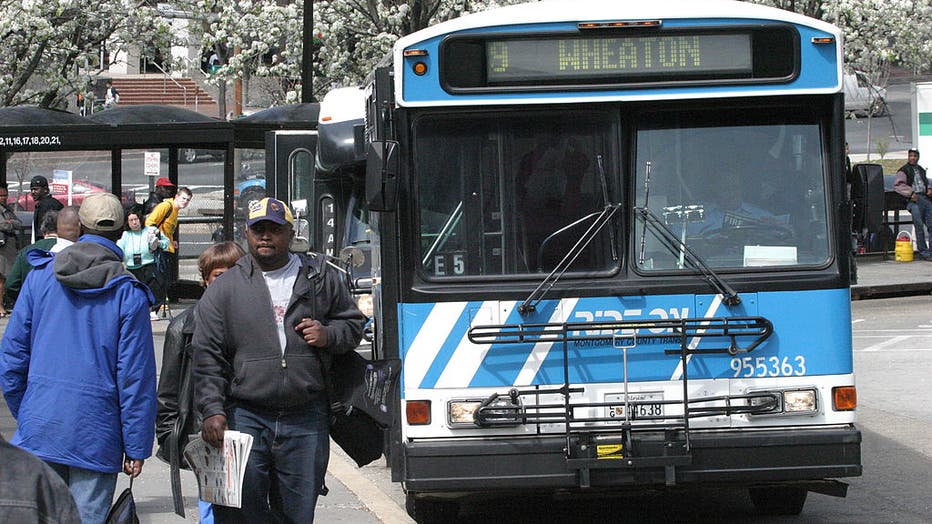Montgomery County, WSSC Water partner to turn poop into power for Ride On buses

Turning poop into power for Ride-On buses
The Washington Suburban Sanitary Commission has reached an agreement with Montgomery County to turn poop into power. WSSC's Brian Mosby is in charge of this poop-to-power plan. He joined FOX 5 to break it all down.
BETHESDA, Md. (FOX 5 DC) - The Washington Suburban Sanitary Commission has reached an agreement with Montgomery County to turn poop into power.
The plan is for methane gas captured in wastewater treatment to be upgraded to renewable natural gas at the Piscataway Bioenergy Facility.

That gas will then be used to fuel the county's Ride-On buses.
"The Montgomery County government is always seeking innovative and sustainable practices in order to reduce carbon emissions," said County Executive Marc Elrich. "This agreement to turn methane gas into fuel for our buses is a win-win-win for our constituents, commuters and, most importantly, our environment. I appreciate the efforts of WSSC Water to work with us to create this agreement. Increasing the efficiency and reliability of our Ride-On bus system is critical toward the County’s goal of a 100% carbon emission reduction by 2035. This agreement, along with our new electric buses and microgrids are important improvements within our fleet of Ride-On vehicles."
Featured
WSSC ensures discolored tap water is safe, may continue longer than expected
Some residents in Montgomery County have been experiencing discolored tap water flowing in their homes recently. The Washington Suburban Sanitary Commission (WSSC) says the water is safe to use, but the discoloration is spreading to Prince George’s County and continuing to happen longer than expected.
Brian Mosby is in charge of the poop-to-power plan at WSSC Water.
"When you send any kind of wastewater to the WSSC facility, the byproduct is sludge. That sludge will become poop and be taken to a landfill and basically buried as a waste product," Mosby explained on FOX 5' "DMV Zone." "So, WSSC being the innovative company that it is, we looked at a lot of different places to see what they do, and a lot of other utilities such as in Europe they take this waste product in poop, and they put it in a new product called anaerobic digestion and that works just like your stomach to produce gas. That gas is reproduced in our anaerobic digestion process and becomes methane. We take that methane we upgrade it and then it becomes available as a fuel source."
Mosby also made sure to mention that riders won't be able to smell any poop on the buses that use the fuel.

